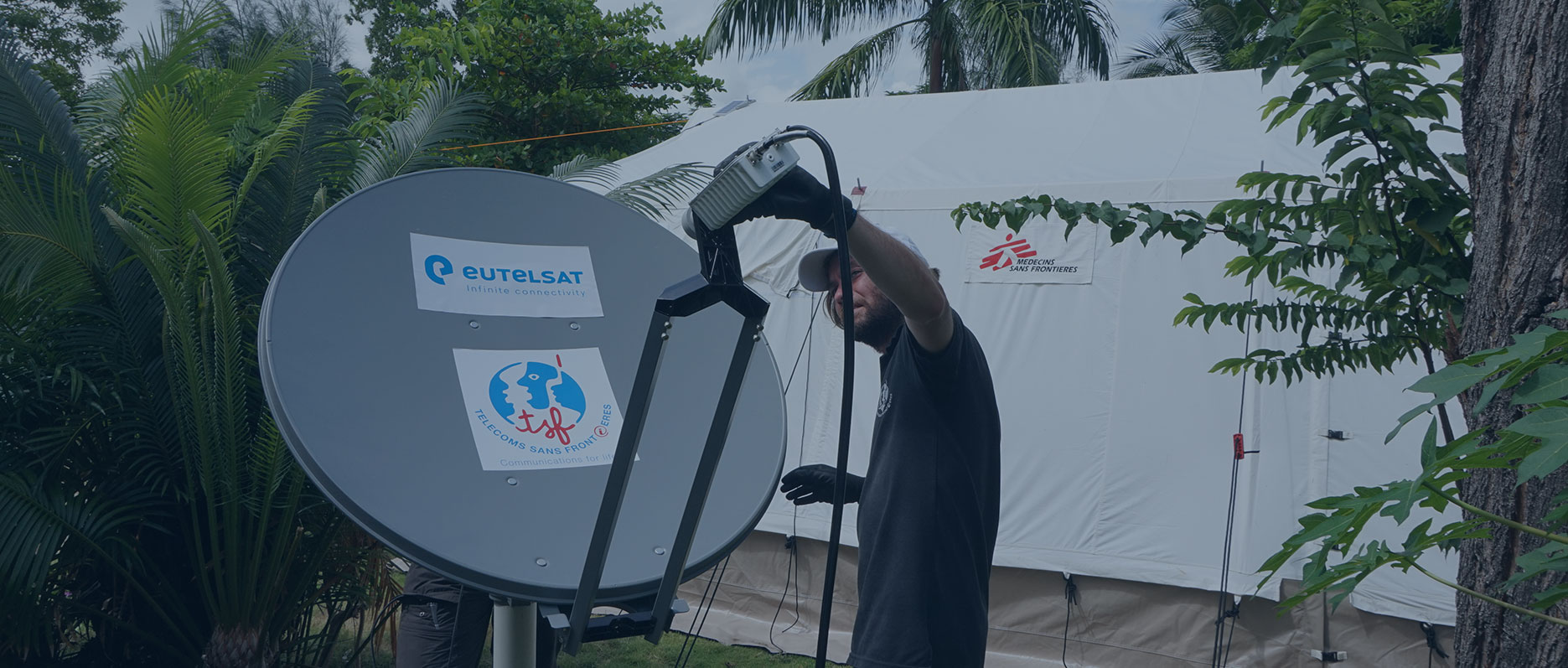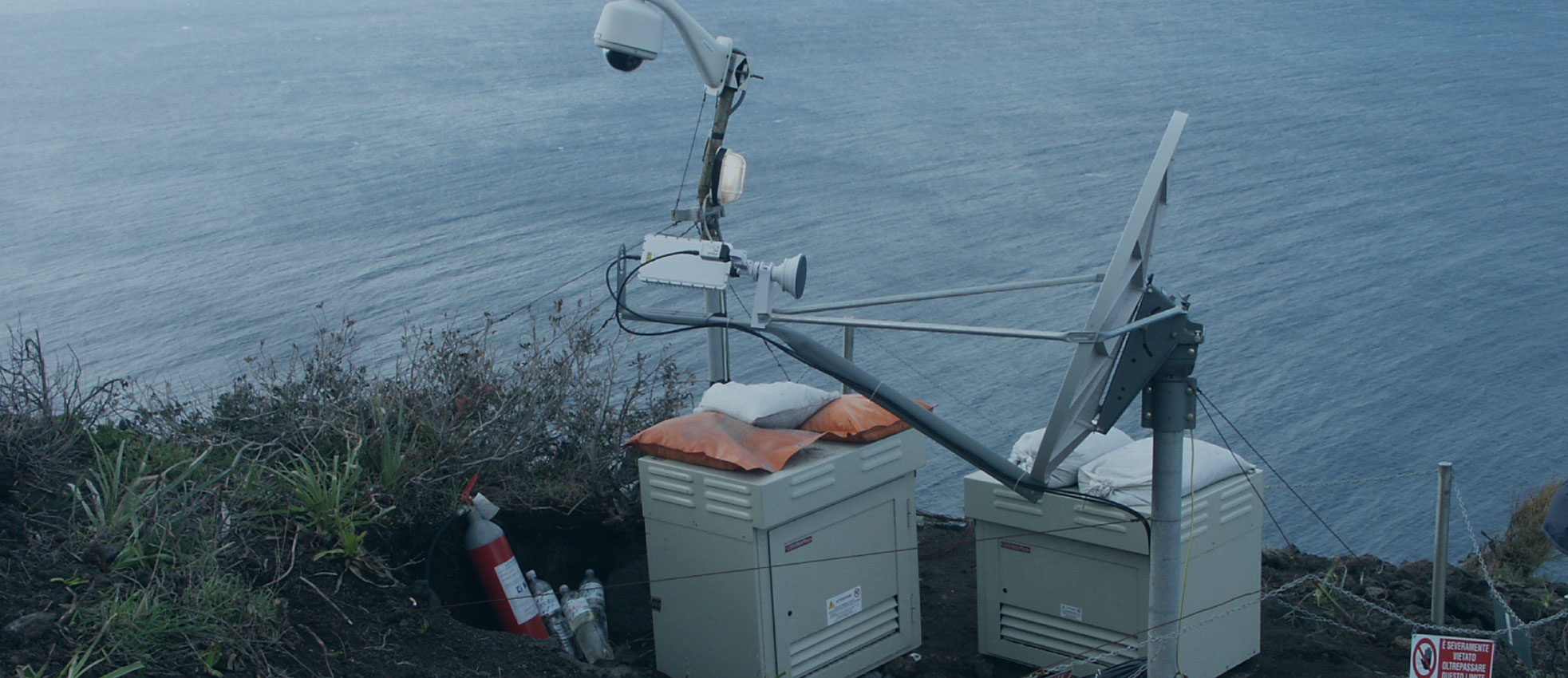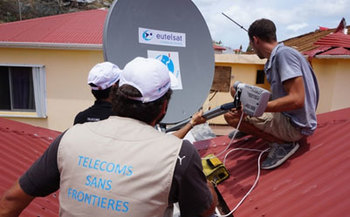SUPPORTING EMERGENCY TELECOMS
Eutelsat has been actively involved with the humanitarian community for 25 years, sharing the industry’s belief that satellite services play an important role in disaster relief. With the increasing number of protracted, complex emergencies, and high demand for bandwidth, commitments from the global satellite industry are critical assets for the humanitarian community.
We have developed dedicated equipment specifically designed to answer the needs of the humanitarian community, and are part of a global industry effort with the Crisis Connectivity Charter. As coordinator and founding signatory of the United Nations’ Crisis Connectivity Charter, the first such agreement between an industrial sector and the UN, we have represented the satellite industry in negotiations with the UN for the past three years.
Eutelsat has also supported leading NGOs Télécoms Sans Frontières and Nethope for several years, donating terminals and bandwidth to support their efforts in establishing high-speed connectivity in crisis situations.
CRISIS CONNECTIVITY CHARTER
The United Nations Crisis Connectivity Charter aims to provide governments and NGOs with immediate and resilient connectivity in case of major humanitarian crisis, within 24 hours, and on four continents.
Signed in 2015, by ESOA (EMEA Satellite Operators’ Association), the GVF (Global VSAT Forum) and several satellite operators, with the support of the Emergency Telecommunications Cluster (ETC) under the World Food Programme (WFP) and the UN office for the Coordination of Humanitarian affairs, the Crisis Connectivity Charter greatly enhances the humanitarian community’s access to vital satellite-based communications when local networks are affected, destroyed or overloaded following disasters.
The Charter’s signatories are committing satellite capacity and equipment to be dedicated for humanitarian purposes during emergency responses. When a disaster strikes, the ETC, under the global leadership of WFP, can activate the Charter and identify which pre-planned solutions are immediately available for any given region and need within a 24-hour deployment timeline after a crisis. Eutelsat’s contribution consists principally of pre-allocated bandwidth on four of its satellites across the globe, complemented on the ground by ready-to-deploy satellite kits.
Since signing the Charter, satellite operators have been active on all continents supporting WFP, governments and NGOs, enabling VoIP, Wi-Fi and internet access via satellite to support supply logistics, urgent medical care and coordination of relief efforts.
INNOVATIVE
IN-THE-FIELD CONNECTIVITY
Eutelsat has revolutionised connectivity in emergency situations. When a disaster hits, every minute counts, and response times must be reduced to the minimum.
By combining our knowledge of off-the-shelf consumer connectivity equipment with the needs of aid workers, we have designed holistic and low-cost satellite kits that are easy to transport, deploy and connect. Replacing the large and expensive satellite terminals traditionally used in crisis areas, small, cost-effective consumer terminals are facilitating logistics and response times.
This new three-part system can be installed, without training, specific skills or tools, in just 15 minutes, providing aid workers in the field with reliable and effective broadband connectivity:
- A robust mast structure, which fits into a carry-on bag, can be set-up in less than five minutes;
- A panel of unique apps available on iOs and Android enable users to locate Eutelsat satellites and determine line of sight and modem parameters in a couple of clicks;
- A motorised satellite dish, which can be pointed with a related app, makes getting online quick and easy.
TELECOMS SANS FRONTIERES
Eutelsat has supported Télécoms Sans Frontières (TSF), a unique NGO specialising in emergency telecommunications, since 2007. The assistance provided by Eutelsat allows the international NGO to equip a community or crisis unit with high-speed connectivity in the space of a few hours to send data, images or voice communications.
In the past year, emergency connectivity implemented by TSF using Eutelsat’s resources has been essential to restore telecommunications in the Caribbean islands hit by Hurricanes Irma and Maria. Eutelsat’s contribution brought about the installation of public access points to a Wi-Fi network in critical centres on the islands. Several hundred connections were made possible simultaneously and were used as a priority by individuals or families to communicate with their relatives.
Eutelsat’s partnership with TSF has also focused on major conflict zones for the last few years, ensuring a nearly-continuous coordination of the various humanitarian actions implemented in the field.








